Randolph EMC Serves NC’s First Electric School Bus
Randolph County School’s bus will run on co-op power
By Chris Nault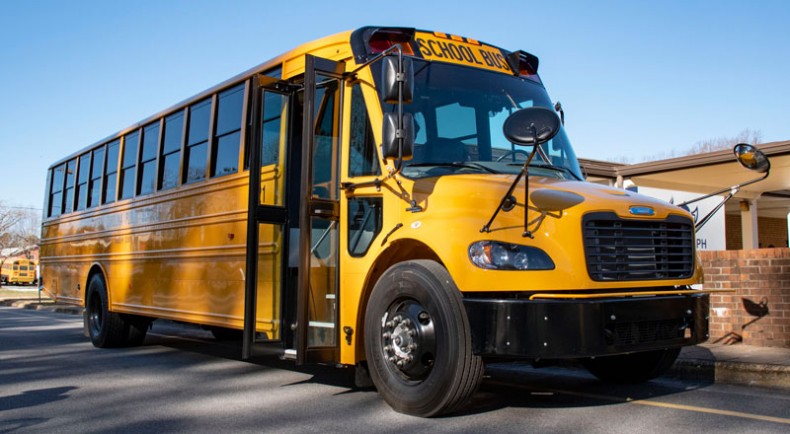
North Carolina’s first electric school bus serving the public school system has arrived in Randolph County and will run on co-op power. The new bus was unveiled at a ribbon-cutting ceremony on Jan. 24, 2023, at the Randolph County Board of Education. The project came to life as a collaboration between Randolph EMC and the local community, with discussions between the co-op and Randolph County Schools beginning back in 2019.
The electric bus will serve a route for students at Southwestern Randolph Middle School, where Randolph EMC has installed a DC fast charger and related electrical infrastructure to support the bus. The electric bus will be powered by Randolph EMC and was manufactured at a plant in Randolph County.
Funding for the electric bus came from the NC Volkswagen settlement, and was secured through a collaborative effort between North Carolina’s Electric Cooperatives, Randolph EMC and the NC Department of Public Instruction. The DC fast charger installed at the school is part of NC Electric Cooperatives’ $1 million investment in rural electric vehicle charging infrastructure across the state. Randolph EMC made significant contributions to the charging infrastructure and other equipment that will power the bus.
“Randolph EMC was founded by several concerned individuals who sought to improve the quality of life of rural North Carolinians through electrification,” said Michael Trent, director of innovative energy solutions at Randolph EMC. “Today, REMC continues to partner with key organizations to bring value to the community.”
Benefits of the electric bus for Randolph County Schools and the surrounding community include reduced emissions and noise pollution, lower maintenance costs and a reduction of operating costs over the life of the bus. In addition to these environmental benefits, the electric bus will serve as a case study on electric vehicle technology for Randolph EMC. The co-op plans to analyze how charging the bus will impact the grid and the school system’s electric bill, drawing out key insights and analysis that will inform future applications of electric vehicle technology across North Carolina.
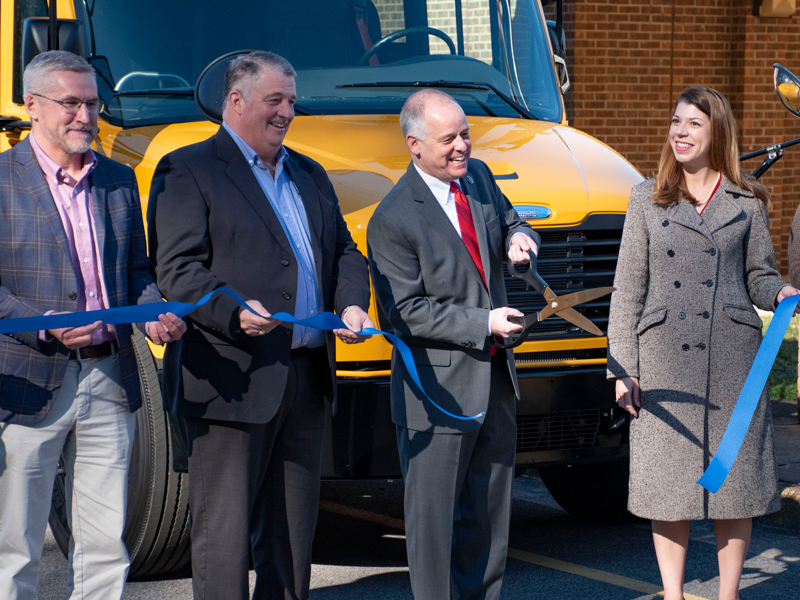
(Left to right) Michael Trent, Randolph EMC; Roy Parks, Carolina Thomas; Dr. Stephen Gainey, Randolph County School System; NC DEQ Secretary Elizabeth Biser.
“North Carolina’s electric cooperatives are leaders in innovation and consistently strive to identify and deploy new technologies to better serve our members and build a brighter future for our communities,” said Nikki Lynberg, innovation and business development analyst at North Carolina’s Electric Cooperatives, who worked with project partners to secure funding for the bus. “It is great to see this project come to life and have an electric bus on the road serving co-op members.”
Through additional funding sources, more than a dozen electric school buses are expected to be operating in electric cooperative served areas throughout the state by the end of next year.
-
More electric vehicles
-
Share this story:

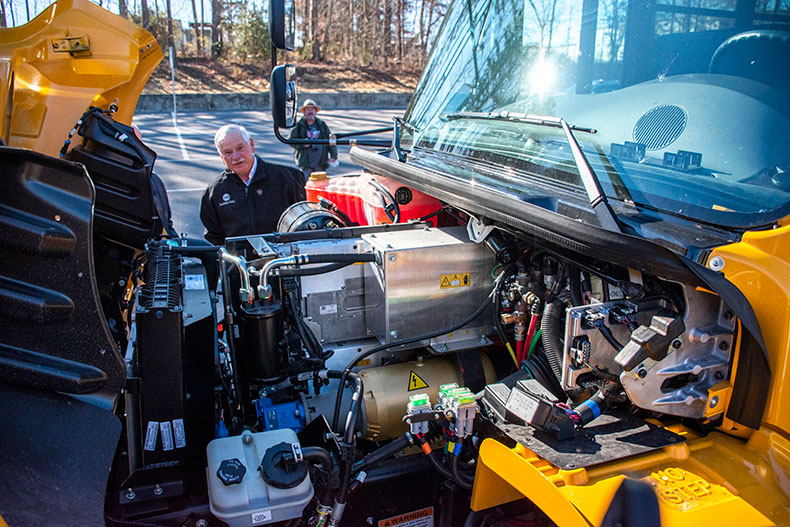
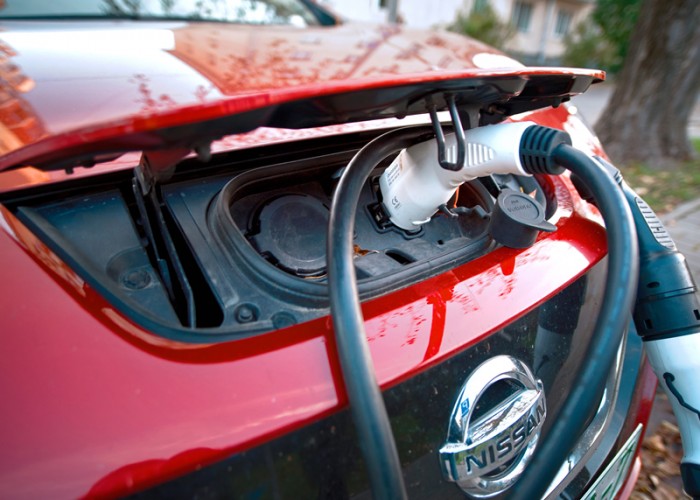
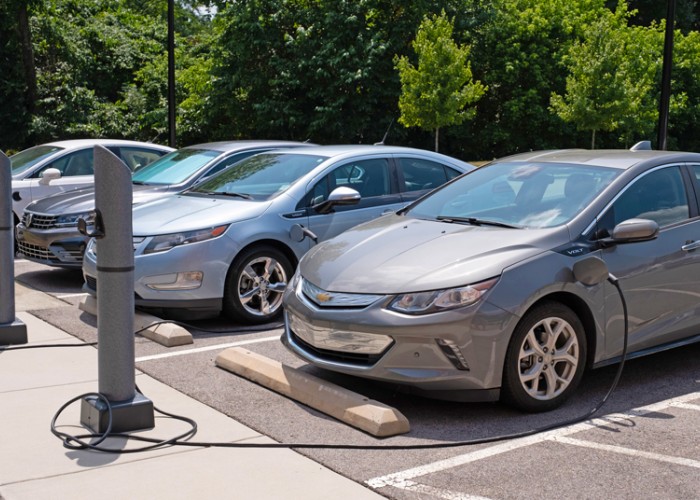
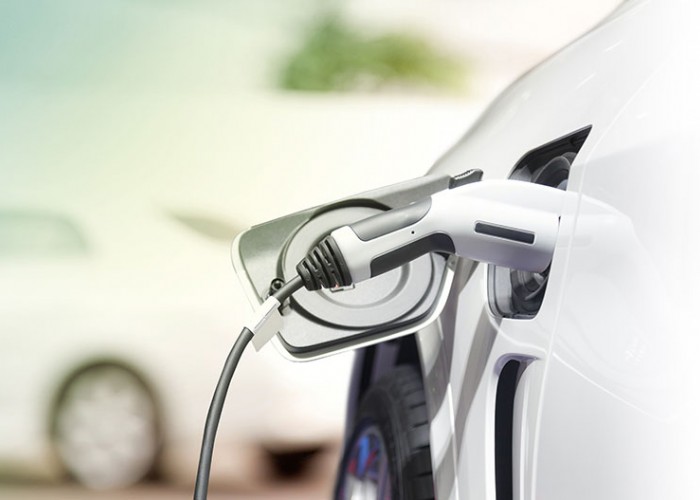



Comments (2)
https://www.wtnh.com/video/electric-fleet-pulled-after-massive-bus-fire/7864057/
Dave |
February 26, 2023 |
reply
“There is limited data on this topic and more work needs to be done, but from the best data we have available, electric vehicles (EVs) are not more likely to catch fire compared to their internal-combustion engine counterparts. Lithium-ion batteries are not a new technology — they are in our phones, laptops, power tools and a growing number of other applications. EVs are a newer application for batteries, but we have a good sense of what they are capable of and how to use them safely. Like any technology, follow the manufacturers’ suggestions for charging and repairs to ensure safety.
When they do occur, EV fires can be more difficult to put out than internal-combustion engine fires due to ‘thermal runaway,’ which occurs when temperatures within a lithium-ion battery increase rapidly, according to the Raleigh-based energy consultant Advanced Energy. Most states (including North Carolina) and automakers are developing training programs for first responders so they are well-equipped for handling the EV transition. North Carolina’s electric cooperatives support these programs and host training sessions for first responders in rural areas.”
Carolina Country |
March 16, 2023 |
reply